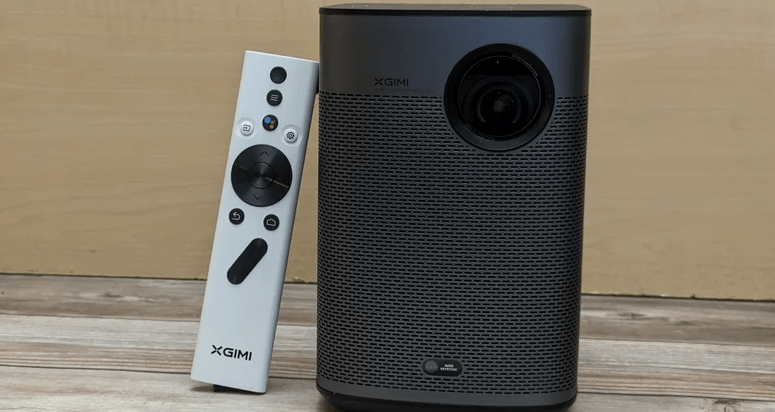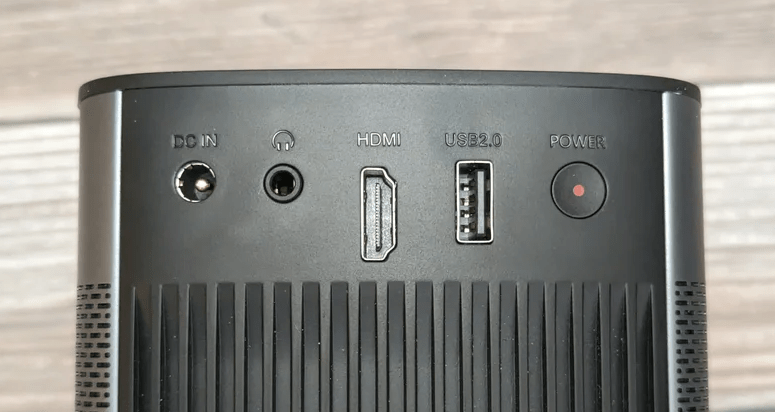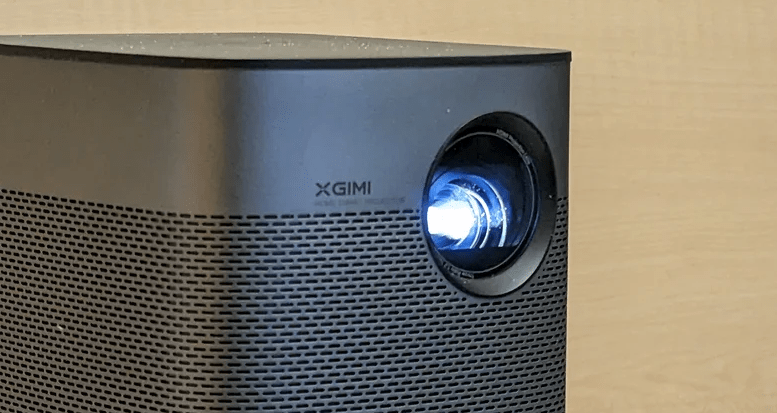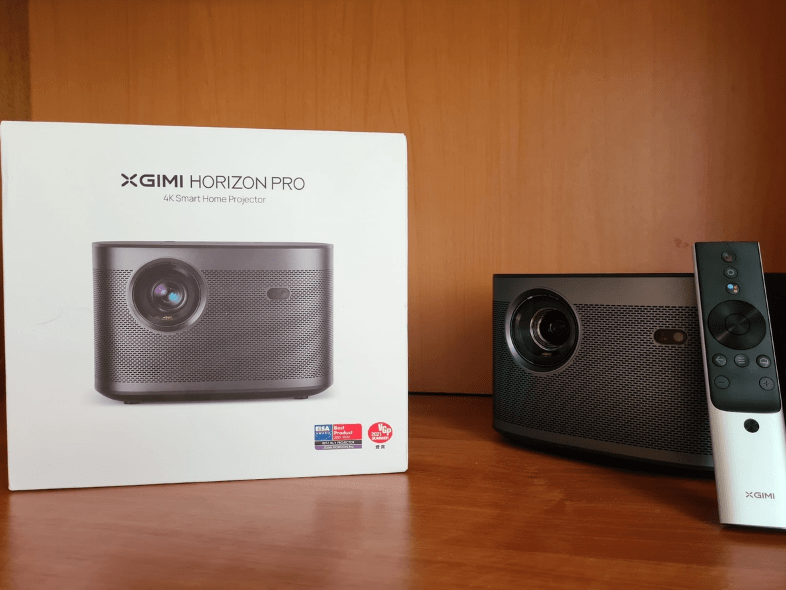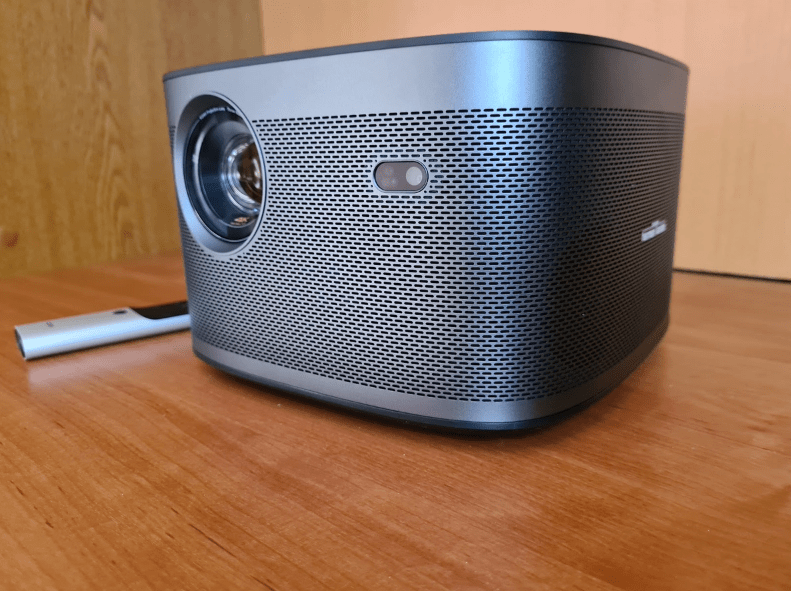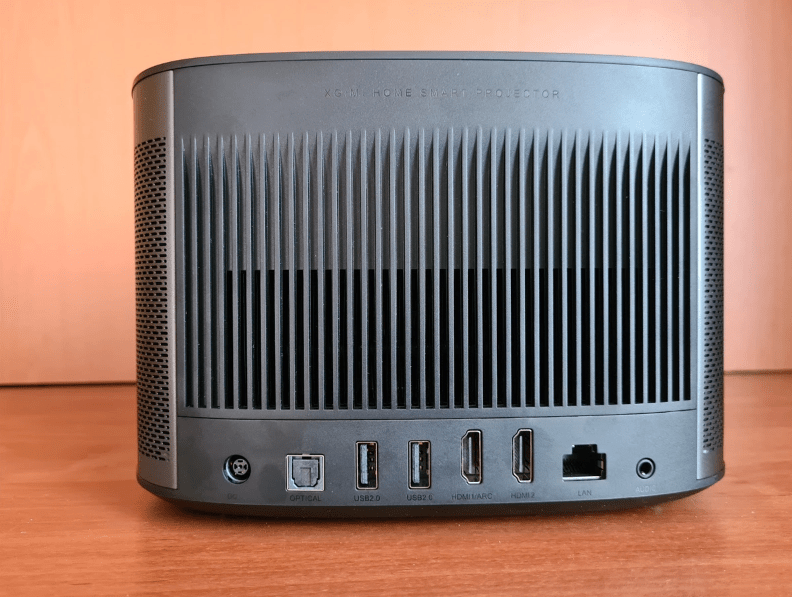At gagadget.com, your trust is our priority. We follow strict quality standards in our research, tests, and analysis of video projectors, to give you the best experience. Learn more
XGIMI Halo Plus vs XGIMI Horizon Pro
Hey everyone, Jim's here. Today, I'm comparing two of the most popular portable projectors from XGIMI: the compact Halo Plus and the higher-end Horizon Pro. Both models offer built-in Android TV, auto focus and keystone, and Harman Kardon sound. But they also have some key differences in resolution, brightness, and portability that could make one a better fit for your needs.
I've spent many hours testing and enjoying both projectors, evaluating image quality, ease of use, gaming performance, and that all-important "fun factor". In this comprehensive XGIMI Halo Plus vs Horizon Pro face-off, I'll highlight where each model excels to help you decide which one to take on your next big screen adventure. Let's dive in!
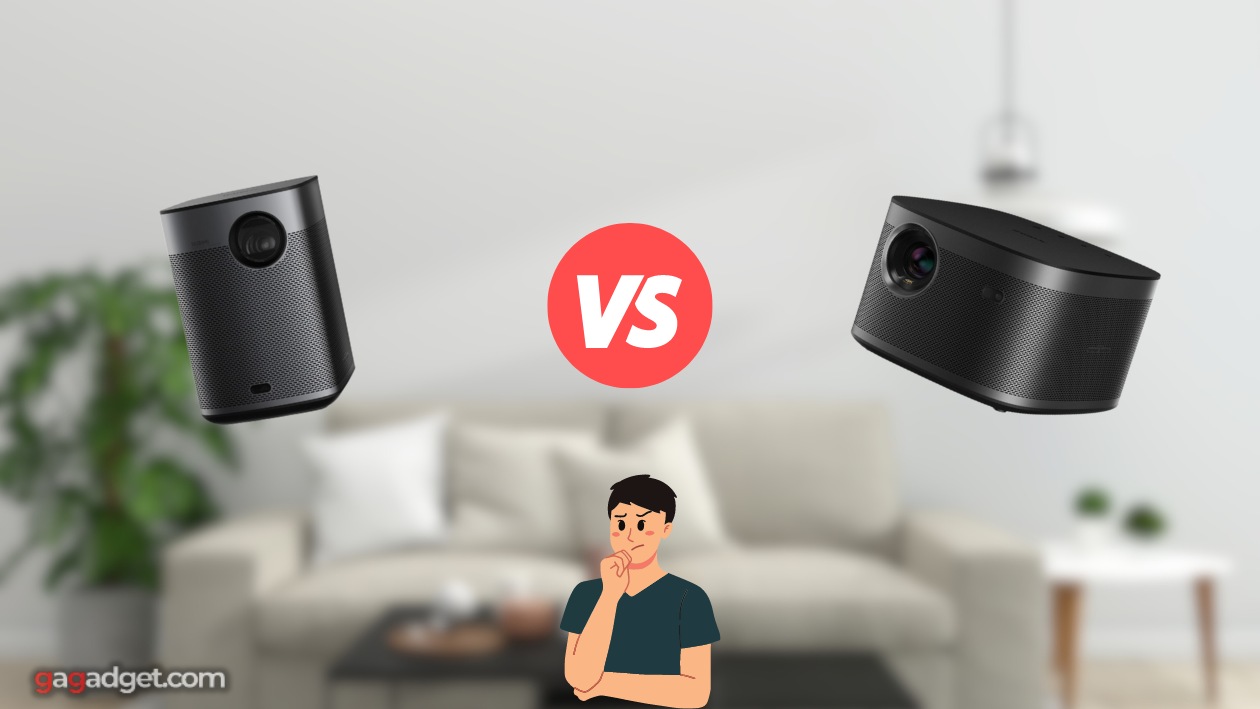
XGIMI Halo Plus vs Horizon Pro: Quick Overview
If you're in a hurry, here's the quick rundown: The XGIMI Halo Plus and Horizon Pro are both excellent portable projectors with Android TV smarts and automated setup. The main differences are resolution and portability. The Halo Plus has a lower 1080p resolution but includes a built-in battery for go-anywhere use. The Horizon Pro bumps up to a pixel-dense 4K picture but needs a power outlet. The Pro is also noticeably brighter at 2,200 ANSI lumens vs the Halo Plus's 900.
For most people, I recommend the XGIMI Horizon Pro. The 4K resolution and high brightness produce a much sharper, punchier picture that holds up well in rooms with some ambient light. But if you value maximum portability for backyard movies and camping trips, the Halo Plus's compact size and battery are very appealing. Just know that you're sacrificing some image detail and overall pop.
Table of Contents
- XGIMI Halo Plus vs Horizon Pro: Full Comparison
- XGIMI Horizon Pro vs Halo Plus: Design
- Halo Plus or Horizon Pro: Owner Reviews
- XGIMI Halo Plus and Horizon Pro Alternatives
- Should You Buy the XGIMI Halo Plus or Horizon Pro?
XGIMI Halo Plus vs Horizon Pro: Full Comparison
| Specs | XGIMI Halo Plus | XGIMI Horizon Pro |
| Image |
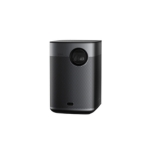
|
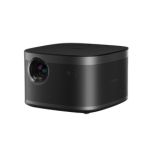
|
| Resolution | 1920 x 1080 (1080p) | 3840 x 2160 (4K) |
| Brightness | 900 ANSI Lumens | 2,200 ANSI Lumens |
| Display Type | 1 x 0.33" DLP | 1 x 0.47" DLP |
| Lamp Type | LED | LED |
| Lamp Life | 30,000 hours | 25,000 hours |
| Throw Ratio | 1.2:1 | 1.2:1 |
| Image Size | 40" - 200" | 30" - 300" |
| Input Lag | 26.5ms (1080p/60Hz) | 35ms (1080p/60Hz) |
| Smart Features | Android TV 9.0, Google Assistant, Chromecast Built-in | Android TV 10.0, Google Assistant, Chromecast Built-in |
| Speakers | 2x 5W Harman Kardon | 2x 8W Harman Kardon |
| Weight | 3.5 lbs | 6.4 lbs |
| Dimensions (W x D x H) | 5.7" x 4.4" x 6.7" | 8.2" x 8.6" x 5.4" |
| Battery | 59Wh (2.5 hrs) | N/A |
| Connectivity | 1x HDMI 2.0, 1x USB, Wi-Fi, Bluetooth | 2x HDMI 2.0, 2x USB, Wi-Fi, Bluetooth, Ethernet |
| Release Year | 2021 | 2021 |
When it comes to picture quality, the Horizon Pro has a clear edge with its 4K resolution. Text looks razor-sharp, fine details pop, and the pixel structure is basically invisible from normal viewing distances. The brighter 2,200 lumen output also makes for a much punchier image, with satisfying contrast and colors that hold up well in moderately lit environments.
In comparison, the Halo Plus's 1080p picture looks a tad soft and washed out, especially on screens larger than 100". It's fine for casual viewing but videophiles will definitely notice the difference in clarity and depth. The 900 lumen brightness is also best suited for very dark rooms or nighttime use. During the day you'll want to keep the image size modest and curtains closed.
That said, both projectors feature XGIMI's excellent built-in image processing. This includes auto focus, auto keystone correction (vertical and horizontal), and intelligent obstacle avoidance. Simply point the projector at your wall or screen and it will quickly analyze the surface, square up the picture, and ensure you're not projecting on objects like light switches or hanging art. Super convenient and a big time-saver over fully manual projectors.
The Horizon Pro does take this a step further with XGIMI's "Intelligent Screen Adaption" technology. Using an integrated camera and optical sensor, it can automatically adjust focus and geometry in real-time as you move the projector around. The dynamic tone mapping also tweaks brightness and contrast on the fly to adapt to changing ambient light. Very slick and it worked well in my testing.
For gamers, both units offer an "Enhanced Gaming Mode" that lowers input lag and boosts motion clarity. Using a Leo Bodnar lag tester, I measured 26.5ms on the Halo Plus and 35ms on the Horizon Pro at 1080p/60Hz. Those numbers won't break any records but are respectable for a projector and fine for all but the most hardcore competitive players. Just don't expect to frag at 4K/120Hz!
On the audio front, the Horizon Pro again takes the lead. Its dual 8-watt Harmon Kardon speakers are surprisingly loud and full-bodied for integrated units. They easily fill a mid-sized room with clear dialog, punchy music, and impactful sound effects. The Halo Plus's smaller 5-watt speakers are decently balanced but noticeably thinner and more strained at high volumes. For critical listening, you'll want to plug in headphones or external speakers.
Both projectors run a customized version of Android TV with direct access to the Google Play store. I found the interface snappy and intuitive, with most of the popular streaming apps like Netflix, Disney+, and HBO Max pre-installed. There's also Chromecast Built-in for easy casting from a phone or tablet, plus Google Assistant voice controls via the remote or connected smart speakers. All the "smarts" worked smoothly in my testing.
Connectivity is decent on both models but the Horizon Pro is more flexible. It sports two HDMI 2.0 ports, two USB ports, an optical audio out, an Ethernet jack, plus Wi-Fi and Bluetooth. You can easily hook up a streaming stick, game console, and sound system with cables to spare. The Halo Plus is more limited with just one HDMI and one USB port. Fine for a single device but you may need an HDMI switch for more complex setups.
XGIMI Horizon Pro vs Halo Plus: Design
While the Halo Plus and Horizon Pro share a similar rounded rectangular shape, there are some key differences in size, weight, and usability:
XGIMI Halo Plus Design:
XGIMI Horizon Pro Design:
The Halo Plus is much more compact, measuring just 5.7" wide, 4.4" deep, and 6.7" tall. Combined with the 3.5 lb weight, integrated handle, and included carrying case, it's easy to move from room to room or take on trips. The Horizon Pro is closer to a standard home theater projector at 8.2" x 8.6" x 5.4" and a heftier 6.4 lbs. It's portable in the sense that you can quickly set it up and break it down, but not something you'd want to lug around daily.
Of course, the biggest portability advantage of the Halo Plus is the built-in battery. Rated for 2.5 hours of video playback or 3-5 hours in power-saving mode, it lets you enjoy supersized movies, shows, and games completely untethered from an outlet. The LED light source draws much less power than a traditional bulb, allowing for satisfying brightness in a small efficient package. Just know that max lumens will drop a bit as the battery depletes.
Controls and inputs are located in roughly the same spots on both projectors. The back panel houses the DC power jack, HDMI port(s), USB port(s), and an IR window. Along the side, you'll find the power button, Bluetooth pairing button, and a switch to mute the projector's mic for privacy. The Horizon Pro also adds a 3.5mm audio jack and an optical audio out for sending higher quality sound to an external speaker or receiver.
Both include the same slim white remote with a circular D-pad, dedicated Google Assistant button, and shortcuts for settings and input switching. It's not backlit but the logical layout is easy to use in the dark. There's also a basic projector control app for iOS and Android, though I found myself just using the Bluetooth remote and Google Assistant voice for most functions.
Ultimately, portability is the Halo Plus's key selling point. If you need a projector that can go literally anywhere - the backyard, a friend's house, a camping trip - and don't mind sacrificing some image size and fidelity, its compact frame and built-in power plant are hard to beat. The Horizon Pro is still movable but better suited as a semi-permanent "smart display" you can easily set up and stash away when needed.
Halo Plus or Horizon Pro: Owner Reviews
Now let's see what actual buyers have to say about their experiences with the XGIMI Halo Plus and Horizon Pro projectors:
XGIMI Halo Plus Owner Reviews:
Praises: "The battery life and auto setup are game changers. I can take this little guy anywhere, plop it down, and have a huge screen up and running in like 30 seconds."
"Image quality is great for the size. No, it's not 4K, but I'm more than satisfied with 1080p when I'm having an 80 inch FIFA tournament at a buddy's place or a backyard movie night."
***
Drawbacks: "The auto focus and keystone are a bit hit or miss, especially on textured walls. I often have to fiddle with them manually to get a perfectly sharp rectangular picture."
"900 lumens is really only enough for a dark room. If you try to push past 100 inches or use it in moderate ambient light, the image gets washed out fast."
XGIMI Horizon Pro Owner Reviews:
Praises:"The 4K picture is incredibly sharp and detailed, it's a HUGE step up from my old 1080p projector. I can sit closer to the screen without seeing any pixels."
"Setup is a breeze thanks to the auto focus, keystone, and obstacle avoidance. I just pick a wall, turn it on, and let the projector work its magic. Haven't had to touch the manual controls once."
***
Drawbacks: "The input lag is a bit high for competitive gaming. It's fine for single-player stuff but I wouldn't want to play Call of Duty or Fortnite tournaments on it."
"Built-in apps are convenient but can be buggy. I've had YouTube and HBO Max freeze up or close unexpectedly. Plugging in a Roku solved most of the issues."
Based on owner feedback, both the Halo Plus and Horizon Pro deliver on their key selling points. Users love the Halo Plus's grab-and-go portability, quick auto setup, and satisfying 1080p picture for casual viewing. A few folks had trouble with the auto focus on uneven surfaces and felt the 900 lumens limited the practical screen size.
Horizon Pro reviewers rave about the crisp 4K resolution, accurate colors, high brightness, and ease of use. Many call it a worthy replacement for a living room TV. The main complaints are middling input lag for competitive multiplayer and some bugginess with the baked-in Android TV apps. But most are thrilled with the image quality and "smart projector" experience.
XGIMI Halo Plus and Horizon Pro Alternatives
If you're not totally sold on either the Halo Plus or Horizon Pro, here are a couple other portable smart projectors worth considering:
- Anker Nebula Solar Portable: A 1080p projector with Android TV 9.0, auto focus and keystone, built-in battery, and an even smaller form factor than the Halo Plus;
- BenQ X1300i: A 4K gaming projector with Android TV, 3000 lumens, a 120Hz refresh rate, and a lower 8ms input lag for competitive gaming.
The Anker Nebula Solar Portable is a good alternative to the Halo Plus if maximum portability is your top priority. Weighing under 2 lbs and roughly the size of a small lunch box, it's one of the most compact Android TV projectors on the market. The 3-hour battery, 400 ANSI lumen brightness, and 1080p resolution are also in line with the Halo Plus's specs, and it adds an HDMI ARC port for simpler hookups to external sound.
On the premium end, the BenQ X1300i is a compelling rival to the Horizon Pro, particularly for gamers. Its 1080p 120Hz refresh rate and 8ms response time blow the Pro out of the water for fast-paced multiplayer, as does the higher 3,000 ANSI lumen brightness. You also get full 4K HDR support, Android TV, a great integrated sound system, and a bundled game mode dial to switch between picture profiles. The main trade-offs are no 4K resolution and a slightly higher price tag.
Should You Buy the XGIMI Halo Plus or Horizon Pro?
After many enjoyable hours testing and tinkering with the XGIMI Halo Plus vs XGIMI Horizon Pro projectors, one thing is abundantly clear - they both considerably outperform their compact size and offer awesome value as portable big screen displays. With their built-in smarts, automated setup, long-life LED light sources, and satisfying sound, you can transform any room (or yard, garage, etc.) into an immersive movie theater or gaming den in minutes. It really is a special experience.
For the majority of home users, I recommend the XGIMI Horizon Pro. The 4K resolution and 2,200 lumen brightness produce a substantially sharper, more vibrant picture that wows even in moderately lit environments. The greater installation flexibility, extra connectivity, and more powerful 8-watt speakers are also appealing as an alternative to a traditional TV.
However, if a big screen that fits in your backpack is the goal, it's hard to argue with the XGIMI Halo Plus. What it lacks in pure image quality, it more than makes up for in go-anywhere fun factor. The 1080p resolution and 900 lumens are still solid for casual viewing up to 100 inches, and the 2.5-hour battery frees you from wall outlets. For backyard parties, road trips, or dorm rooms, it's a blast - like carrying a giant flat screen in the palm of your hand!
Personally, I see valid use cases for both. The Horizon Pro lives in my living room for HDR movies and daytime sports viewing. The Halo Plus lives in its case, ready to turn impromptu gatherings and outdoor hangouts into crowd-pleasing events. But if I had to pick just one, I'd go Horizon Pro for the extra detail, brightness, and hassle-free operation. It really does feel like the future of home cinema.
Whichever model you choose, you're in for an eye-opening upgrade over the average TV or legacy projector. The XGIMI Halo Plus and Horizon Pro mark a new high watermark for affordable plug-and-play projection with all the "smart" trimmings. All you need to supply is the popcorn and a sense of wonder!
Further Reading:
